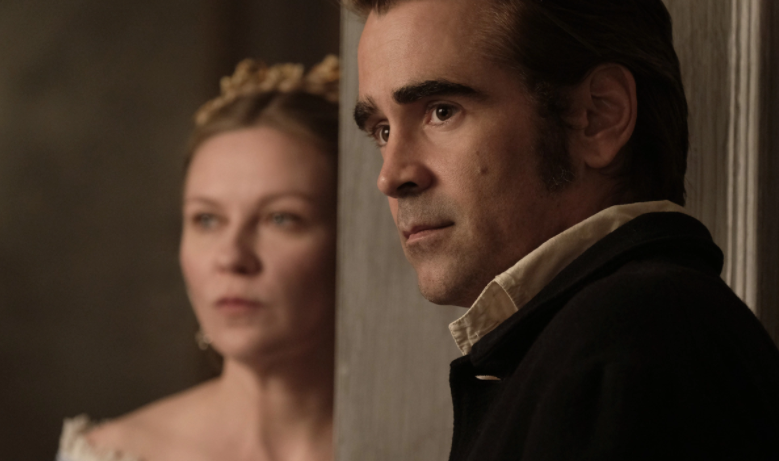The opposite sex can be a ferociously attractive and fascinating thing, more so when one is largely deprived of association with it. Sofia Coppola’s The Beguiled is about an all but abandoned girl’s school during the American Civil War that unexpectedly finds itself welcoming a male guest. That male is Corporal John McBurney (Colin Farrell), and it’s indicated that he is the first member of the opposite sex that the females at the school have had any considerable occasion with for some time. He’s also a particularly charming member of the opposite sex.
Charm can be a nifty thing; something that those who don’t have it appreciate and all those who do profit from. A good friend of mine is one of the most charming people I know. Two weekends ago, I had finally made it home from a night out at about quarter past two in the morning. I was just resting my head on my pillow, grateful that I hadn’t pushed the night any further, when this friend of mine called my phone. She was at a party with a whole host of great people, and I was halfway out the front door when I came to my senses and I dived back into bed, but not before turning my phone off.

Burney, an Irish corporal in the Union Army, has a comparable knack for persuasion. He is found, injured and near death, in the forest near the school. Within days, the Corporal has every remaining member of the school emotionally seduced, including the head of the school Miss Martha Farnsworth (Nicole Kidman), the teacher Edwina Morrow (Kirsten Dunst) and the eldest student, Miss Alicia (Elle Fanning). “You’re my best friend here,” he tells Miss Amy (Oona Laurence) and only a few hours later he tells Edwina that he was in love with her since the moment he saw her, although his actions that follow suggest otherwise. He is charming, but he is an opportunist, and a scumbag.
Sofia Coppola, who became the first woman in fifty years (and only the second woman ever) to win the Best Director at the Cannes Film Festival for her work on this film, has lost the insight that made her early films so wonderful. In a recent interview, Coppola suggested that The Beguiled is about the power dynamics between male and female, but it isn’t. On the surface, there is a lot to suggest that the film should be about that, or about a number of things, such as the precision of lifestyle and education in the era of the American Civil War set side by side with the raw energy of passion and emotion or the undisciplined drive of sexual attraction.

But The Beguiled isn’t about anything because, as she did previously with Somewhere and The Bling Ring, Coppola has rendered a film full of potential relatively lifeless. Coppola doesn’t have anything to say about power dynamics between male and female or for that matter any of the other avenues that The Beguiled might have explored. There’s no purpose to this film, and the story has enormous possibility but little reward. Coppola fills her films with the right actors, atmospheres and aesthetics and fails herself by barely pursuing the potential of her subject matters.
The characters and their behaviour is a significant issue. We understand that Burney is charming because of the way that the females in the school always want to visit his room and dress in their best clothes when he comes to dinner but beyond some pretty gimpy compliments, that charm is never convincingly conveyed to anyone not actually occupying the screen. He’s a scumbag because of his actions later on in the film, but why he’s a scumbag beyond being a shallow ingrate is never clear.
The Beguiled is based on the Thomas P. Cullinan novel of the same name, which was originally published as A Painted Devil) and also adapted by Don Siegel in to the 1971 The Beguiled, starring Clint Eastwood and Geraldine Page. Having neither read the novel nor seen the original adaptation, I can’t speak regarding whether they suffer from the same sort of emptiness as this film. Coppola has no problem when it comes to latching on to wonderful ideas, but doesn’t delve beyond superficial interests.